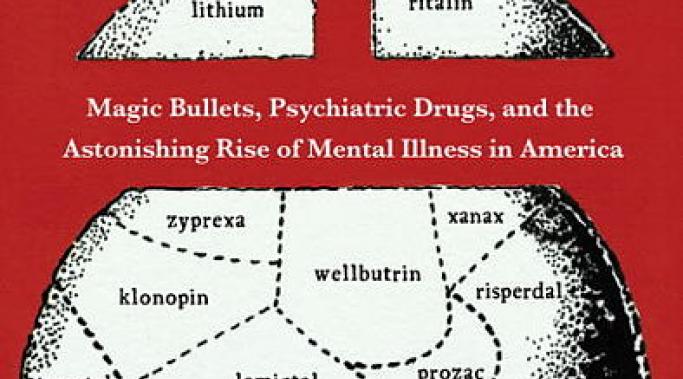Just to be clear, I’m not the biggest fan of drug companies. I’ve written about how much I dislike them and I’ve written about how wrong it is when they break the law and I’ve written about how ridiculous the penalties are when they do. I understand why people are outraged at companies that produce a healthcare product and then don’t follow the rules designed to protect of the health of the consumers that take it.
But that aside, people seem to be really mad that pharmaceutical companies put profits before people. And my point is, so what?
Drug Information
If there’s one thing to remember about psychiatric (psych) meds it’s that you need to take them and you need to take them on time. This is because medication puts chemicals into your bloodstream and in order to keep a consistent level of these chemicals in your bloodstream, you must take the drug as prescribed. This is particularly critical in bipolar disorder as it’s easy to become unstable with an uneven level of psych med in your blood.
But we’re all human. We all mess up and forget things and we all miss a dose from time to time. So how do you handle missing a dose of a psych med?
I remember, before trying medication, I was terrified of it. I had the same misconceptions that many people do:
Medication is for weak people
Antidepressants are just “happy drugs” designed for people who can’t handle life
Medication will ruin your brain
Doctors give out antidepressants like candy whether you need them or not
As it turns out, none of these things are true, but they sure seemed true at the time.
So I get fear of antidepressants and other medication. Psych medication is scary stuff.
But sometimes you have to face that fear in order to get better.
Many people here have read Robert Whitaker’s Anatomy of an Epidemic: Magic Bullets, Psychiatric Drugs, and the Astonishing Rise of Mental Illness in America (New York: Crown Publishers). And some of these people will likely claim that the book changed their lives or, at the very least, their view of psychiatry and psychiatric medication.
Well. Ho there. You would think with such a ground-breaking book I would be all over it.
Guess again.
I refuse to read Anatomy of an Epidemic. And yes, some people will fault me for this. But I have a good reason. I refuse to read Anatomy of an Epidemic as I have no desire to be outraged at a misunderstanding of science for 416 pages.
The Poster Child: Robert Whitaker
Robert Whitaker is the poster-child for antipsychiatry, which is his prerogative. If he enjoys talking to throngs of antipsychiatrists then I say, better him than me.
And part of his criticism of psychiatry is well-deserved. I would say that being concerned with the use, and possibly overuse, of some medications and the prescribing of heavy psychotropic medications to children is quite warranted. I take no issue with the fact that debate and concern is appropriate here.
What I do take concern with is his contention that psychiatric medication actually worsens treatment outcomes and causes disability. This is the reason why antipsychiatrits love him and it’s the reason I probably couldn’t stand to be in the same room as him.
There is an interesting, if perhaps disturbing, phenomenon in psychopharmacological drug treatment. It is the instance where a person initially has a satisfactory response to a medication, getting well, and perhaps staying well for years, only to have the illness come back at a random time in the future. The medication just “stopped” working. We have known about this for a long time with many drugs including antidepressants and anticonvulsants (mood stabilizers) and it’s sometimes referred to as antidepressant “poop-out” (I kid you not).
But this phenomenon goes against even the most basic understanding of medication, so why is it happening?
Recently, I was talking with someone on Twitter and she was concerned about the side effects of psychiatric medication X. I asked her what her starting dose was for the psych medication and she said 15 mg. Now, I’m not a doctor, but I can tell you two things:
That is ridiculous.
That will certainly make the patient stop the medication early due to side effects and never even find out if it works.
On Twitter a follower asked me about a specific side effect of a medication. She was considering taking the medication and was worried she might suffer from this side effect. This is a reasonable concern and it’s good that she’s researching the drug's effects and possible problems ahead of time.
But the thing is, while knowing about the possibilities is good, worrying about the possibilities is pretty useless. You won’t know if you will get the side effect unless you actually try the drug. The only way to know what is going to happen is to roll the dice.
Yes, psychiatric drugs can cause weight gain. It's not a rumor; it's not a myth; it's true. It's one of the most unfortunate things about medication.
But what can you do about drug-related weight gain?
Last week we talked about five of the top things that we learned about mental illness last year:
Statistics on Prevalence of Bipolar Disorder
How often is Bipolar Diagnosis Mistaken for Depression?
Predictor of Bipolar Treatment Success
Antimanic Treatment Efficacy - Drugs Compared
Are Two Antidepressants Better Than One?
Today we will discuss 6-10 in part two of this article.
There's nothing new under the sun.
Or so I've been told. And while nothing new may exist, we sure learn about new things all the time. People do lament that our understanding of bipolar disorder and other mental illnesses is too lacking, but each year we learn more about the human brain and mental illness.
Here then are top ten things we learned this year about mental illness.
![MP900337232[1]](/sites/default/files/styles/blog_listing/public/uploads/2012/08/MP9003372321.jpg?itok=eDEPw9GC)
![MP900337265[1]](/sites/default/files/styles/blog_listing/public/uploads/2012/08/MP9003372651.jpg?itok=Q8RFhXjw)
![MP900255362[1]](/sites/default/files/styles/blog_listing/public/uploads/2012/06/MP9002553621.jpg?itok=ccR4teIZ)

![MP900227837[1]](/sites/default/files/styles/blog_listing/public/uploads/2012/05/MP9002278371-124x180.jpg?itok=xgyGSOGl)

